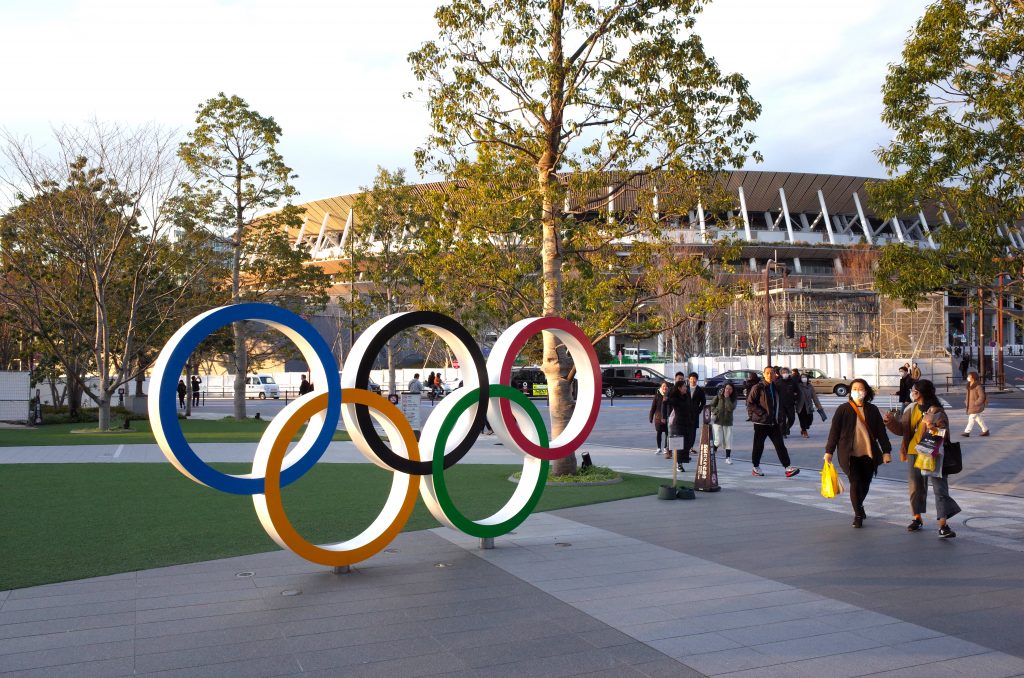
- ARAB NEWS
- 15 Jul 2025

TOKYO: Dentsu Group Inc donated more than $6 million to Tokyo’s successful campaign to host the 2020 Olympics, according to bank records seen by Reuters, and it lobbied members of the International Olympic Committee on behalf of the city, according to three people involved in the lobbying.
The activities created a potential conflict of interest for the Japanese advertising company, which had a separate contract with the IOC to market the games.
To assist in its effort, Dentsu endorsed the hiring of a Singaporean consultant by the Tokyo Olympic campaign. The company’s role is laid out in transcripts of interviews company executives gave to investigators appointed by the Japanese Olympic Committee (JOC) to examine whether there had been any wrongdoing in the course of Tokyo’s campaign.
French prosecutors investigating corruption in global sports suspect that consultant, Tan Tong Han, played a role in bribing Olympic voters for Tokyo in 2013, according to two people familiar with the French probe. Tan did not respond to requests for comment from Reuters.
Until now, Dentsu has played down its involvement with the Tokyo campaign. In answers to questions, the company said its employees only provided advice, when asked, on “several experts and consultants in the sports field,” including Tan.
In the months leading up to the IOC vote to award the Olympics in 2013, Dentsu played a much more active role, according to the three people involved in lobbying and campaign bank records, even as it maintained its longstanding business relationship with the IOC. That placed it on both sides of a competitive bid, a possible conflict under IOC guidelines.
Article 10 of the IOC’s rules of conduct for cities vying to host the games states that its top tier of advertisers and marketing partners “shall refrain from supporting or promoting any of the cities” in order to “preserve the integrity and neutrality” of the bidding process.
The IOC told Reuters last month that Dentsu was not a marketing partner between 2011 and 2013, when Tokyo was bidding to host the 2020 Olympics and therefore not subject to that rule. However, Kiyoshi Nakamura, a senior Dentsu executive, told JOC investigators in 2016 that his company was an IOC marketing partner at the time of the bid, according to the transcript of his interview seen by Reuters.
The IOC did not respond to questions from Reuters on whether its ethics commission, the body which would make a ruling on any conflict of interest, looked at Dentsu’s activities during Tokyo’s 2020 bid.
Nakamura told Japanese investigators that the IOC had what he called an “adult understanding” of Dentsu’s role in working directly with the Tokyo campaign. “They (the IOC) told us not to do it publicly,” Nakamura told investigators, according to the transcript of his 2016 interview seen by Reuters and not previously reported.
In 2013, Dentsu transferred $6.2 million into the Tokyo campaign’s sponsorship account. The previously undisclosed contribution was more than 10 percent of the total that bid sponsors provided.
Dentsu confirmed the payment, but declined to specify the amount,”we provided a donation in response to a request for support from the bid committee, after an adequate internal corporate process,” Dentsu said in a statement without disclosing how the money was used.
Dentsu said its staff had provided “advice and information to the bid committee” when requested but had no official consulting role.
The company said its activities during Tokyo’s campaign adhered to the IOC’s rules of conduct and, to its understanding, did not infringe on the rule that prohibited IOC sponsors and marketing partners from supporting or promoting any candidate cities involved in an Olympic bid.
The IOC told Reuters that Dentsu had been “contracted by the IOC to deliver services which were not linked to the candidature of any city.”
Winning the Olympics for Tokyo was one of Shinzo Abe’s signature accomplishments as prime minister. The Tokyo Olympics, originally scheduled to take place this summer, has been delayed to 2021 because of the pandemic. Yoshihide Suga, who succeeded Abe last month, has said he would do “whatever it takes” to host the event next year.
The question of whether bribes were paid to secure the Tokyo games remains a focus for French investigators, who are scrutinizing Dentsu’s role, according to a person with knowledge of the probe.
Emmanuelle Fraysse, secretary general of France’s National Financial Prosecutor’s Office, declined to comment on an ongoing investigation. Dentsu said it had not been contacted by French prosecutors.
The IOC declined to comment on whether bribes were paid in relation to Tokyo’s 2020 Olympic campaign. It said it was co-operating with the French investigation.
Dentsu denied it played an active role in hiring Tan or coordinated contact with him. In a statement to Reuters, Dentsu said: “It is not true to say that our company was coordinating communication between the bid committee and Tan.”
Reuters